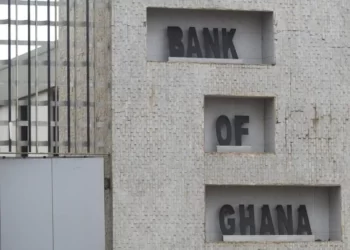Standard Chartered Bank has reduced its non-performing loans (NPLs) ratio on a gross basis significantly at the just ended financial year, ending December 2022.
According to the bank, it was able to reduce its non-performing loans (NPLs) ratio on a gross basis from 23.59 percent in the previous financial year (2021) to 12.04 percent in 2022 financial year.
Meanwhile, this decline is significant and indicates that fewer customers are defaulting on their loans. This positive development is likely a result of the bank’s proactive approach to managing its loan portfolio, which has helped it to reduce the number of bad loans on its books.
The bank’s liabilities grew from GHS 8.4 billion to GHS 9.0 billion within the review period, which suggests that the bank has taken on more liabilities. Moreover, the bank recorded a marginal decline in its Capital Adequacy Ratio (CAR), but despite the decline, StanChart’s CAR remains strong and well above the Bank of Ghana’s minimum requirement of 10 percent.
Standard Chartered Bank Ghana Records a Loss
Regarding profitability, Standard Chartered Bank Ghana within the review period recorded a loss of GHS 299 million for the period ended December 2022, compared to a profit of GHS 436 million for the same period in 2021. This decline in profitability can be attributed to the domestic debt restructuring programme undertaken by the government.
Despite this significant decline in profitability, the bank’s total assets value increased marginally, rising from GHS 10.1 billion in 2021 to GHS 10.3 billion in 2022. The growth can be attributed to the rise in loans and advances to customers from GHS 1.8 billion in 2021 to GHS 2.0 billion in 2022, indicating that the bank has been able to maintain its lending activities despite the challenging economic environment.
It Is worth noting that Standard Chartered Bank is not alone in facing challenges in Ghana’s banking sector. Other banks have also reported declining profitability in recent years. This trend is a reflection of the challenging economic environment in the country, which has been marked by high inflation, a weakening currency, and a high level of government debt.
While the decline in profitability for Standard Chartered Bank in Ghana is a cause for concern, the bank’s strong CAR and declining NPLs suggest that it Is well-positioned to weather the storm. However, the bank will need to continue to take proactive measures to manage its loan portfolio and improve its profitability going forward.
Given the challenging economic environment in Ghana, it will be interesting to see how Standard Chartered Bank navigates the current landscape and what steps it takes to improve its performance in the coming years.
Standard Chartered plc is a British multinational bank with operations in consumer, corporate and institutional banking, and treasury services. Despite being headquartered in the United Kingdom, it does not conduct retail banking in the UK, and around 90% of its profits come from Asia, Africa, and the Middle East.
READ ALSO: NewGold ETF Earns $2.6 Million Income at of March 2023





















